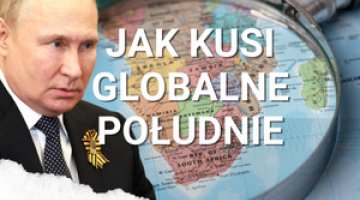The customs union: Russia’s political project
On 5 July in Astana, the presidents of the states which make up the customs union, Russia’s Dmitri Medvedev, Kazakhstan’s Nursultan Nazabayev and Belarus’s Alyaksandr Lukashenka, signed a declaration on the entry into effect of the joint Customs Code. This formally signifies the creation of a Customs Union (CU) between these states, although in reality it will only be a substitute for one. Despite its limitations, the CU may prove to be advantageous for these countries’ economic co-operation. However, one negative consequence of its creation is that the process of Russia’s accession to the World Trade Organisation will be extended. The nature of the CU and the manner of its introduction show that for Russia, the move is above all of political significance, and serves to strength Moscow’s influence in the region.
The customs union of Russia, Kazakhstan and Belarus
The customs union, which has been inspired by Russia, is another attempt at integration in the area of the former USSR. Russia, Belarus and Kazakhstan had already signed the first document on creating a customs union in 1995. However, because of the enormous divergence of interests between the partners, the agreement was implemented only selectively.
In accordance with the most recently accepted documents, as of July 2010, Russia, Belarus and Kazakhstan have formally created a joint customs area (the principles of its operation are very close to those currently practised on Russian territory), within which the majority of goods exchange should be subject to the principles of free trade. The partner countries have introduced a uniform customs tariff (with some exceptions) for the import of goods, as well as a joint Customs Code, which regulates the procedures applied to the import and export of goods on the CU’s territory. In addition, the parties are preparing a harmonisation of technical, sanitary and phytosanitary standards; these will most probably be in accordance with those in force in the European Union, as in June this year Russia harmonised its standards with those of the EU.
However, the customs union which Russia, Kazakhstan and Belarus have created has a great many limitations. Over 400 kinds of goods which are sensitive in nature for the parties have been excluded from the joint customs tariff; these include key items such as private cars (Kazakhstan and Belarus have lower customs duties for these than Russia does). Because of these differences, customs checks of goods imported from third countries will be maintained at the partner countries’ internal borders. Furthermore, the parties have not accepted many of the individual legal acts regulating their customs policies. One important exception from the free-trade regime within the customs union is export duties for some of the Russian crude oil and petroleum products delivered to Belarus, which is not designated for internal consumption. It must be expected that other barriers will also still apply in internal trade within the CU, mainly extra-tariff barriers (including quotas and subsidies).
The limitations in the CU’s functioning which have hitherto been maintained should, in accordance with Russian declarations, be suspended by 1 January 2012, i.e. from the moment that the joint economic area covering the three partner countries opens. Considering the ongoing divergence of interests between the partners, however, this seems unlikely.
Motivations for creating the customs union
The declared aim of creating the CU is a desire to strengthen economic ties between the countries that it includes. Over the last 20 years, economic relations between Russia and the countries of the former USSR have loosened. In the years 2004-8, Kazakhstan and Belarus’ shares of exports to Russia in these countries’ total exports fell, by 11% (to 9%) and 18% (to 32%) respectively. Meanwhile, trade between Belarus and Kazakhstan is minimal.
The limited extent of the customs union (which has above all been dictated by Russian interests), as well as the experiences of economic integration in the region until now (which include failures to respect agreements which have been concluded) point to the principally political motives of the agreement which Moscow has lobbied for. Considering the invariability of Russian interests, which among other things are linked to the defence of its own market from goods from Belarus and Kazakhstan, problems with implementing the CU’s regulations can be expected. By forcing Kazakhstan and Belarus into an agreement to create the customs union (in the case of Minsk, even the gas deliveries were deliberately limited), Russia wanted to demonstrate its dominant role in the region, as well as its attractiveness (soft power) in not only the political and security spheres, but also in economic matters.
Minsk wanted to retain at least part of its preferences in its economic and energy relations with Russia, and so it had to agree to the creation of the CU on Russia’s terms. Kazakhstan’s joining the CU, on the other hand, may be described as a political gesture by Astana towards Russia (which is especially important in the context of the current unstable situation in Kyrgyzstan).
The consequences of creating the customs union
The creation of the CU will have both economic and political consequences. The further restriction of barriers to internal trade between the partner states, and the unification of their trade policies’ principles, may cause a growth in trade in the region. At the same time, the ongoing deep differences in other areas of economic life (such as regulations for conducting business, and the question of taxation) may incline businesses to move their production to countries with more liberal laws (such as Kazakhstan). These tendencies would pose a serious threat to the Russian economy especially. Further appeals to a protectionist policy must then be expected from Russia, even despite the content of the agreement. Similar activity can be expected in turn from Belarus and Kazakhstan.
A consequence of the new customs union will be a delay to Russian membership in the World Trade Organisation. Of the three CU countries, Russia is most advanced in its negotiations with the WTO, although the CU project has served as a pretext to postpone its negotiations on accession; negotiations have been suspended from June 2009 to September 2010. As a consequence, Russia’s focus on regional integration, at the cost of its relations with the WTO and the European Union, has shaken its image in the West as a serious and responsible negotiating partner. On the other hand, Russia’s forcing through of the joint Customs Code (even though the executive acts for it have not yet been signed) for the three partner countries may be considered a political success for Moscow. A functional customs union may limit Belarus and Kazakhstan’s room for independent participation in alternative integration structures (with the EU or China), which is one of Russia’s main political aims.
additional research by Kamil Kłysiński





